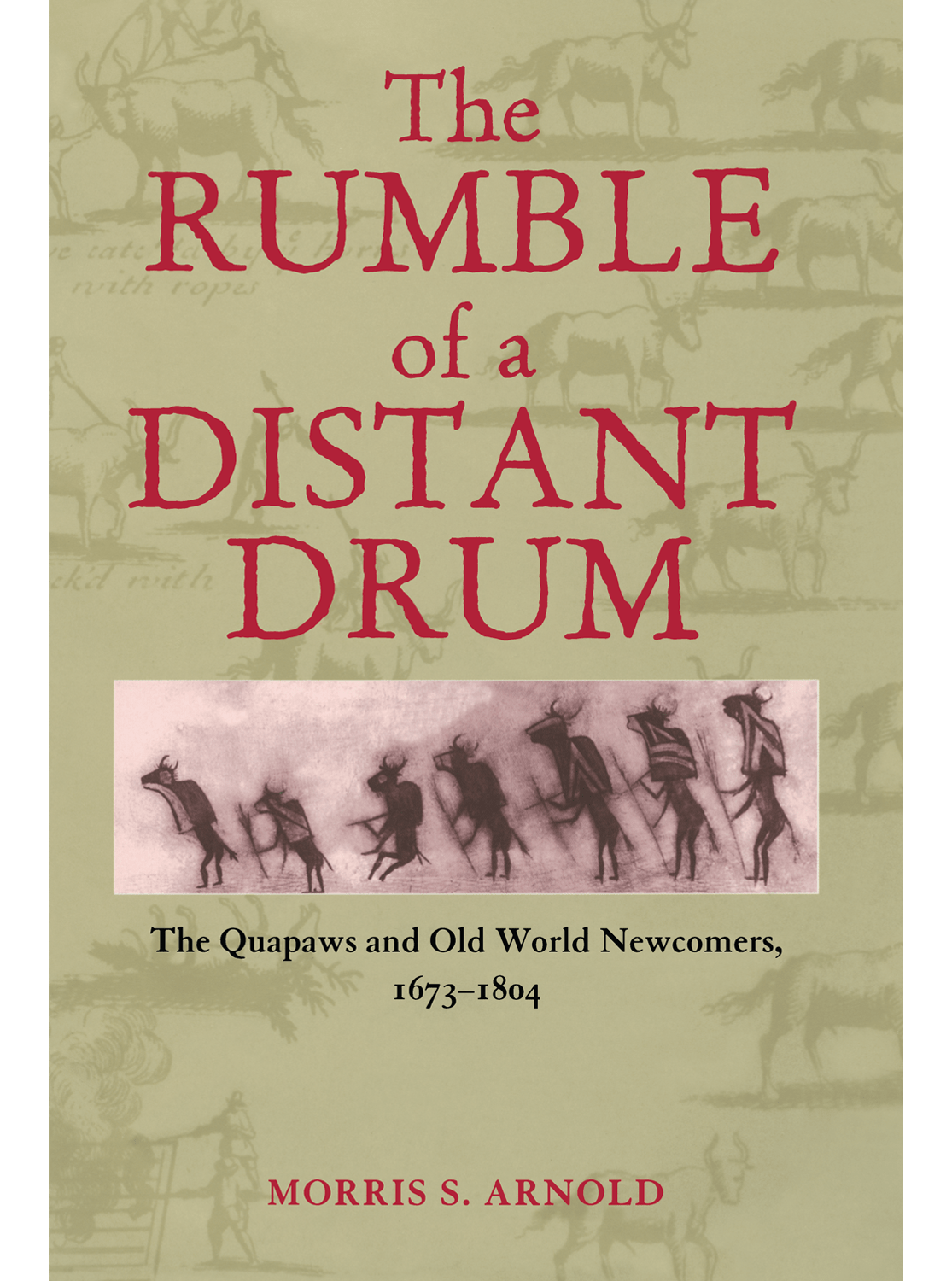The Rumble of a Distant Drum opens in 1673 when Marquette and Jolliet sailed down the Mississippi River and found the Quapaw living in the area where the Arkansas River flowed into the Mississippi. In 1686 Henri de Tonti would found Arkansas Post in this same location. It was the first European settlement in this part of the country, established thirty years before New Orleans and eighty before St. Louis.
Morris S. Arnold draws on his many years of archival research and writing on colonial Arkansas to produce this elegant account of the cultural intersections of the French and Spanish with the native American peoples. He demonstrates that the Quapaws and Frenchmen created a highly symbiotic society in which the two disparate peoples became connected in complex and subtle ways—through intermarriage, trade, religious practice, and political/military alliances.
Morris S. Arnold is a United States Circuit Judge for the Eighth Circuit and a past winner of the state’s highest literary award, the Porter Prize. He is the author of a number of books, including the prize-winning Colonial Arkansas, 1686–1804: A Social and Cultural History and Unequal Laws unto a Savage Race: European Legal Tradition in Arkansas, 1686–1836.
“The best book on the subject. . . . Highly recommended.”
—Library Journal
“It is indeed a pleasure to recommend a book that looks objectively at colonial diplomacy from the tribal point of view.”
—Journal of the West
“A very valuable book on one of the earliest and least known outposts of the French and Spanish empires.”
—Louisiana History
“Arnold’s clear, non-polemic narrative most importantly humanizes the Quapaws, stripping away platitudes and stereotypes and giving them back their roles as complex actors in the colonial adventures of the region.”
—Ann M. Early, State Archaeologist
Winner of the 2001 Booker Worthen Literary Prize
Winner of the 2002 S. G. Ragsdale Award for Arkansas History

